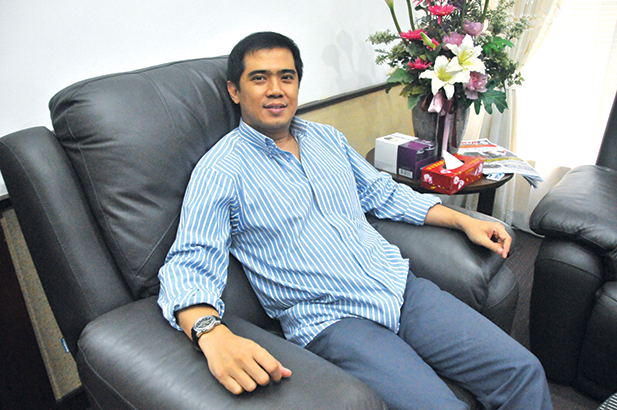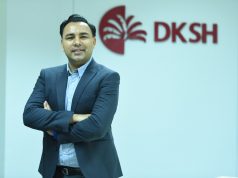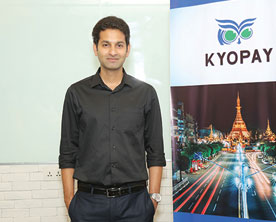Name : Captain Nay Tun Oo
Profession : Pilot Myanmar Airways International (MAI)
[paypal]
MI: What inspired you to become a professional pilot? How did you become?
My father is from the army. That’s why I have always seen army training and flied the airplane since my childhood. There are 3 types of the defense services: Navy, Air force and Army. I would like to be one of these, especially fighter pilot. Although I had a chance to take exam of Defence Ser- vices Technological Academy (DSTA) after my matriculation examination, it is not sure to be a pilot. If I fail in medical check up, I will be a soldier instead of a pilot. Therefore, my ambition was faded at that moment. My parents also want me to enter into the army as an army engineering 1st batch student. At that time, it is just a few opportunities to be a pilot. There was no flying academy. And it is also concerned with the budget. It need- ed at least $50,000 / $60,000 to attend the pilot training. My father is a civil servant so he cannot support that amount of money for me. So, my ambition to be a pilot was faded and I was eager to study abroad. By coinci- dence, government announced a scholar- ship programme for pilot training in Indo- nesia by matriculation marks and I met all the requirements for that program and was also healthy. This is the beginning of how I become a professional pilot.
MI: What was your student life like at the aviation school? And what were the difficulties in pursuing such a career in Myanmar?
At that time, Myanmar and Indonesia start- ed bilateral relationship. Moreover, before Indonesia became an independent country, Myanmar provided military aids to Indone- sia. Vice versa, Indonesia offered packag- es and I was a participant of pilot training package. When we reached Indonesia, the handouts that we learned in English, howev- er, lecturers explained in Indonesia. So, we had to attend Indonesian course, called Ba- hasa Indonesia, about three months. Then, we started our pilot training which lasted for about two years.
I faced difficulties within Indonesia training period because I was a scholar of govern- ment and our training was under Ministry of transport of Indonesia as well as most of the trainers are from air force. And they trained strictly like military training. Juniors are governed by seniors. No exception for us, foreigners.
MI: What is your career history like before you started working for MAI?
After I came back from Indonesia training, I worked as a co-pilot at Myanmar Airways for two and half years from 1994 to 1996 in domestic airlines. Then, I labored at Yangon Airways from 1996 to 2007. From 2007 to 2010, I flied for King Fishers Airline in In- dia. Finally, I started working for MAI since December 2010 to continue my career in Myanmar. I am sick of working abroad. Now I am a captain at the MAI and also fly for external airways such as those from Singapore, Malaysia, Bangkok, Cambodia, China, India, Korea and Japan.
MI: Please tell us some of the most memorable incidents?
In my first experience, I had encountered bad weather and I was worried that the airplane might fail. In my second experience, the airplane was taking off and one of the en- gines almost stopped and there were a lot of weights with full loads. In another incident, one engine had high oil temperature. So, I had to stop that engine and landed with only one engine. There has been a lot of risks in my career.
MI: How would you describe a pilot job in a word or a phase?
Every each of the alphabets in a word “PI- LOT”, there is a meaning. “P” stands for Personality, “I” represent Intelligence, “L” refers to Loyalty, “O” means Obedient and “T” is Toughness. These are what we need to qualify and have to build up ourselves to fulfill the qualities. Personality means a pilot does not need to be handsome, however, he has to look like a smart guy to get confidence from his passengers. Intelligence: Of course, he must be intelligent. Loyalty: he must be faithful and steady. Then, Obedient: After a captain, there is a co-pilot. After a co-pi- lot, there are cabin crews in charge, called Chain of command. If everyone is obedient, it will be a safe trip. Toughness: pilot must be healthy, no cancer, no heart attack etc.
MI: What is your typical daily schedule?
Every Friday, weekly roster is announced. Depending on the roster, I can plan my time. For example, if I am assigned on Mon- day, Tuesday and Friday, I have duty for three days. What will I do in the rest of the days? Travel to somewhere or sport, golf or something like that.
On the day I am assigned for flight, I set up my own principles like avoiding alcohol. And I wake up at 5 am, wash and iron my clothes, do exercises for about 15 minutes before taking a bath. Then, I take a ferry at 6:30 am. I try to get to work one hour earlier than the required time. When I reach my home in the evening from work, I take a rest, watch TV and sometimes do the exercises such as swimming.
MI: What would be the hardships and the career effects you have on your personal life?
Yes. Pilot career is more suitable for the youths who are healthy. Toughness level re- duces when getting older because pilots are sitting on the risks. It is good to be a pilot only up to the age of 45, may be 50 years. And we need a back-up a business after that.
MI: What kind of changes occurred in your aviation industry since you had started your career?
At present, there are many airlines. When I started flying, the airways were very lim- ited, only Yangon Airways, Myanmar Air- ways and Air Mandalay for domestic flights. For international airways from Myanmar, there was just Thai airways, TG. After 2010 election, Myanmar economy is booming and foreign investments have come in. It brought in many airlines into Myanmar and we can now choose to fly with a variety of colorful airlines. So, I assume that Myan- mar’s aviation industry has developed.
MI: What is your opinion on MAI competitive strengths and weaknesses?
As a strong point, MAI is the only airline to have obtained IOSA certificate among do- mestic airlines. When foreign airlines make alliance for code sharing with local airlines, they issue certificate for the airline.
The weakness is that MAI does not have its own airplanes and have to rent planes.
These planes are medium-ranged aircrafts that cannot fly away, out of Asian countries.
MI: If you could give a suggestion to improve the MAI or aviation field of Myanmar? What would it be?
I would like to suggest that businessmen who are really interested in aviation field must be ready to invest. Everything de- pends on budget. Also, it is important to get the government’s support.
MI: If you were not a pilot, what would you have become?
If I didn’t choose to be a pilot, I would go and study in America. May be I would build my own business or may be I would be a staff at there. It is difficult to say what would I be. And I am also interested in Science. So, may be I would work at NASA.
MI: What will be your advice to some- one who wants to start a career in aviation field?
There are two options in aviation field. One is to be a professional technician (pilots and engineers) and another is an aviation con- sultant. Both require good command of English. And choose the best university. Then, decide where you want to work.[/paypal]










